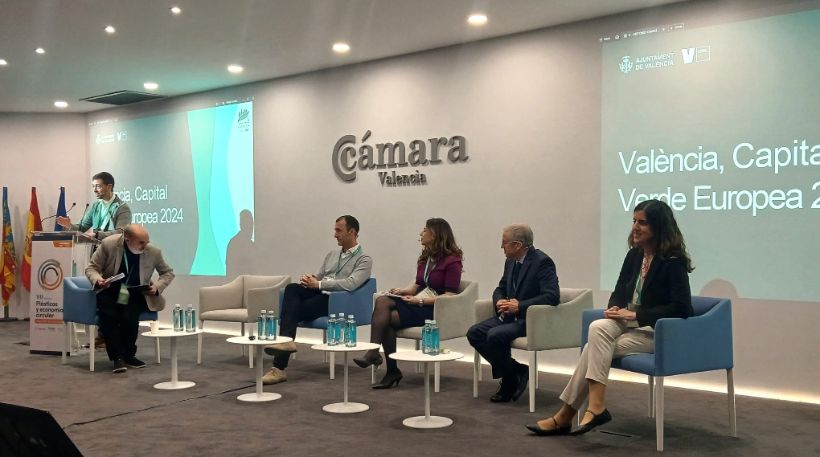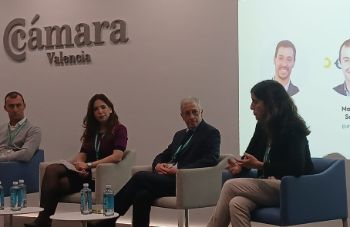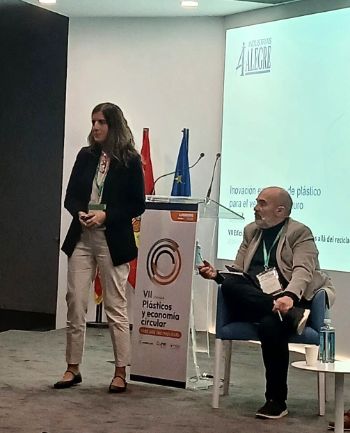Amparo Vázquez: "The automotive industry can multiply the positive impact of the circular economy".
The VII edition of the meeting on Plastics and Circular Economy brought together in València nearly 150 professionals from different sectors to analyze the latest innovations in this field. The event, which included presentations by experts from the public administration, research centers and, to a lesser extent, from the industrial world, became an interesting meeting point in which our R&D&I director, Amparo Vázquez, contributed the vision of a company like I. Alegre, which is very focused on the automotive industry. She was in charge of showing the audience the real challenges of the circular economy in the automotive sector.

Plans are inspiring but the reality is more complex.
Our colleague started from a fact well known to the audience: that the circular economy has become a strategic axis for Europe, which is promoting the use of recycled materials, eco-design and the reduction of the carbon footprint.
But there is an obvious contrast between the theory and its development.
OEMs, in this context, want more recycled materials, but their technical requirements have not changed. "They are asking for the same durability, strength and finish in parts made from recycled materials as when they were made from virgin chippings. And this, today, is a big challenge".
A challenge and even a contradiction. Because, as I. Alegre's own management points out, "in order to have the same results with both materials, the recycled material has to be treated a lot, 'doping' it and making it, in the end, less ecological than what we all want".
The challenge of standardization
These divergences between theoretical approaches and reality are very revealing. Even when it comes to approved materials. Vázquez says: "we have at our disposal homologated recycled materials, of course, but with tests that have been carried out in a laboratory, under very controlled conditions and with simple geometries. These are test-tube approvals and these materials do not behave in the same way when they are taken to the real industry, incorporating them into injection processes with complex geometries and very specific functional and aesthetic requirements".
Amparo Vázquez's speech at the Forum concluded with this message: if we want to implement a circular economy, we need to work harder on the transition from theory to industrial practice.
And despite the criticisms, the bet is still on, because I. Alegre is a company that aligns itself with the vision shared at the Forum.
"But it is essential that all the actors involved in the value chain work together to move from good intentions or prototypes to industry," says the expert. And she confirms: "It is essential that administrations, research centers and manufacturers converge on viable solutions, from a technical and economic point of view".
Encouraging the pull effect from the automotive sector
At I.Alegre we know that the automotive sector, due to its complexity and its enormous weight in the global economy, is in a strategic position to lead this change. And, as Vázquez says, "many of the innovations that are being promoted in our sector today will have a knock-on effect on other industrial segments, multiplying the positive impact of the circular economy".
But for this to happen, it is essential to establish solid collaboration channels.
The Plastics and Circular Economy forum made it clear that the ideas of reuse, carbon footprint reduction and eco-design continue to gain ground. Of course, there is still a long way to go. And at I. Alegre we are confident of achieving tangible and lasting results for society and the environment.

